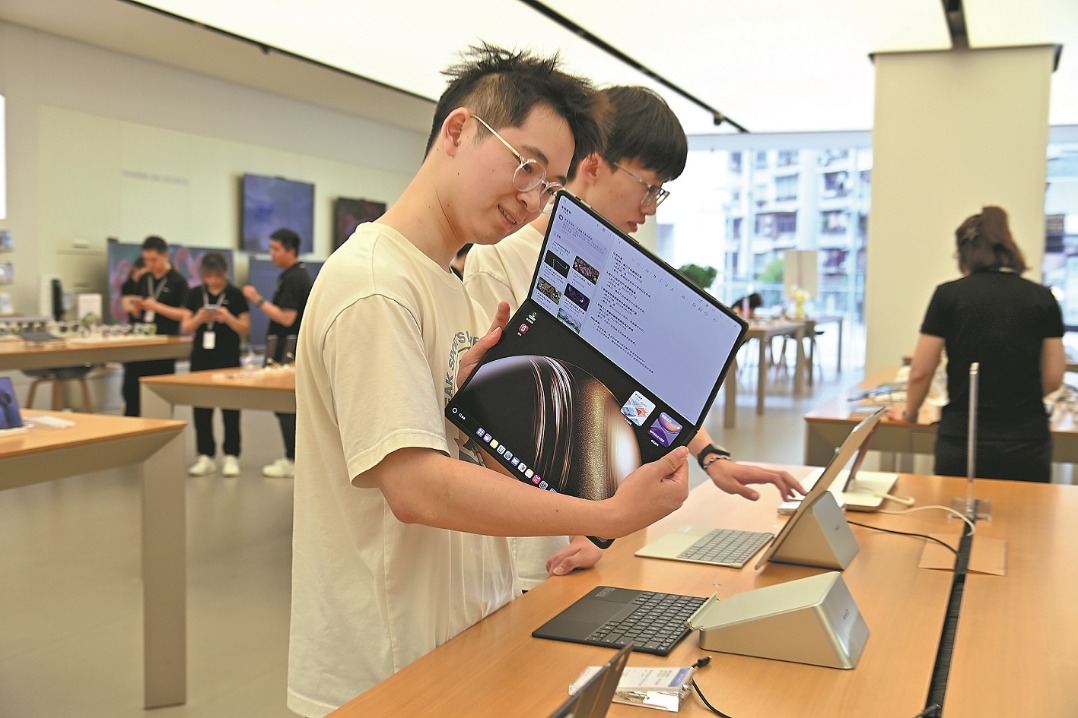Paulson notes China's rise in global finance


China will continue to grow as a global financial player in the coming years, according to former US treasury secretary Hank Paulson.
"Traditionally, challenges to American leadership have come from well-established financial centers like London, Hong Kong and Tokyo. But mainland China will be an increasingly formidable challenger in financial services in the next few years," Paulson wrote in an op-ed published on The Wall Street Journal website Wednesday.
Paulson, 74, who ran the Treasury Department amid the great subprime-mortgage lending crisis of 2008, which reverberated around the world, wrote that the US is still the "dominant force" in the financial services industry.
"The liquidity and scale of US capital markets support the primacy of the dollar, which allows Americans to pay less for foreign goods and helps finance U.S. government spending," he wrote.
But Paulson said that America's financial leadership "is increasingly being challenged by fierce competition from abroad and by shortsighted and counterproductive policies at home. Maintaining US financial pre-eminence should be a priority for the Biden administration."
Paulson wrote: "Beijing is working to enhance its regulatory structure to meet global standards and provide greater transparency and better enforcement. China's relatively quick recovery from the Covid-19 pandemic without a major fiscal stimulus has also allowed it to maintain higher interest rates and a stronger currency.
"This is attracting large investment inflows to Chinese stocks and other securities. Shanghai ranked first among global exchanges for number of IPOs and capital raised through the first nine months of 2020. These IPOs show that major fundraising can take place outside the US financial ecosystem."
China has accelerated its financial opening-up since 2017. Foreign securities, fund and futures firms were allowed to hold a maximum 51 percent stake in joint ventures, according to regulations announced in November 2017. The limit was removed on April 1 this year.
In early May, China's top financial regulators announced removal of the quota limit on the trading of domestic securities for qualified foreign institutional investors and qualified domestic institutional investors, which will draw more overseas capital into the A-share market.
Paulson wrote that the strength of America's capital markets relies on trust in the country's stable macroeconomic and fiscal policies and in the resilience of its political system.
He surmised, however, that "the US government has undermined this trust through shortsighted actions and long-term fiscal negligence. Efforts to delist legitimate Chinese companies from US exchanges make for good politics, but bring serious and underappreciated risks."
The US House of Representatives on Dec 2 passed a bipartisan bill that would delist Chinese companies from US stock exchanges if they did not comply with American financial auditing rules.
The measure passed the House by unanimous voice vote, after passing the Senate unanimously in May. President Donald Trump is expected to sign it into law.
The Holding Foreign Companies Accountable Act bars securities of foreign companies from being listed on any US exchange if they have not complied with the US Public Company Accounting Oversight Board's (PCAOB) audits for three straight years.
Paulson said such moves "come at exactly the wrong time, driving away Chinese demand for dollars at a moment when the US is taking on large amounts of debt. Let's hope that China doesn't rethink the wisdom of its Treasury holdings."
While China is the second-largest holder of US Treasury debt after Japan, its holdings have fallen to their lowest level since February 2017, following a fifth successive month of net US Treasury sales in September, according to a US government report.
China sold $6.22 billion of US Treasury securities in September, reducing its total holdings to $1.062 trillion. Meanwhile, China increased its holdings of Japanese debt by more than 70 percent in the first nine months of 2020.
The US also has pressured Chinese companies such as telecom giant Huawei Technologies Co Ltd with sanctions and ordered the arrest of Huawei CFO Meng Wanzhou in Canada in 2018. Meng's extradition case is still pending in a Vancouver court.
The Trump administration, which has put tariffs on billions of dollars of Chinese imports amid a nearly three-year long trade conflict, recently limited US companies from conducting business with certain companies that it says have ties to the Chinese and Russian militaries. It also has banned US trading in the shares of some of the companies.
The US also has tried to force the sale of the immensely popular TikTok video-sharing app, owned by Beijing company ByteDance, to American software giants. ByteDance has been granted two injunctions by US courts that have allowed it to continue to operate in the US.
"While investors from around the world are benefiting from investing in equity securities from China, Washington is making it more difficult for US investors to do so," Paulson wrote. "Other financial centers like Hong Kong, London, Tokyo and even Shanghai will be competing for the Chinese listings that the US is now discouraging."
Paulson, former chairman and CEO of investment bank Goldman Sachs also wrote that "a lack of political will to deal with America's long-term structural deficit" undermines confidence in the US economy and the dollar.
"Interest rates are at historic lows, and the federal debt is larger as a share of the economy than at any time since the end of World War II. This debt will continue to grow as Washington finances necessary pandemic-related stimulus and recovery measures," he wrote.
"But as the debt level grows, the attractiveness of US debt will gradually decline. A world-class financial system can't exist in a country that fails to maintain the quality of its credit."
Paulson's prescription: "America needs to play to the strengths that have made its capital markets the envy of the world. At the same time it must craft a smarter approach to dealing with China, one that avoids unnecessary conflict and takes advantage of the opportunities that exist to attract more capital."





































